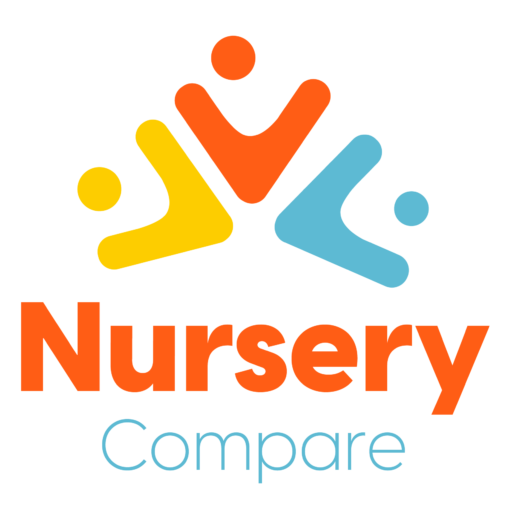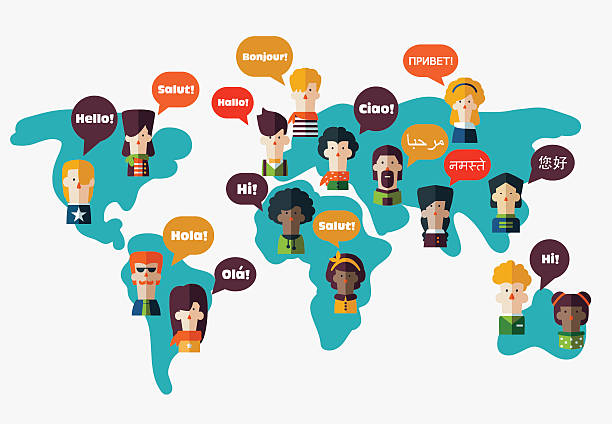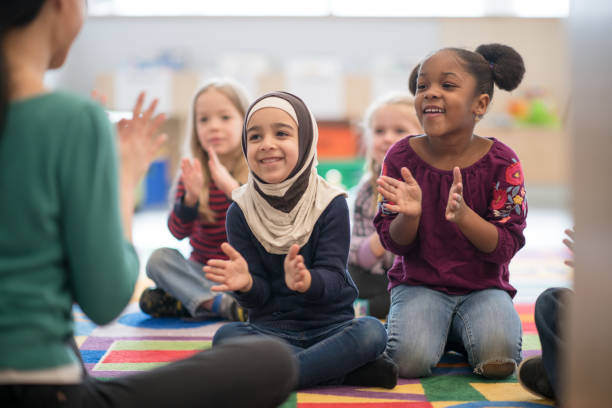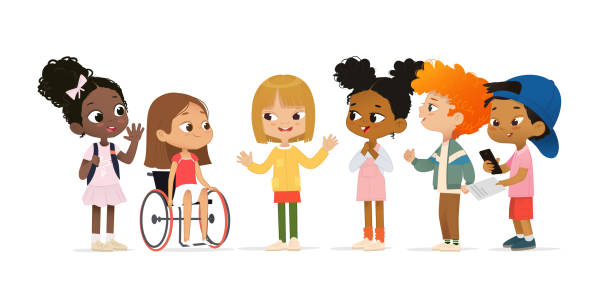
Embracing Cultural Diversity in Daycare: Promoting Tolerance and Understanding

In today’s increasingly interconnected world, cultural diversity in daycare is more important than ever. As children from different backgrounds come together in these early learning environments, the need for teaching tolerance and understanding becomes crucial. For parents, navigating this journey can be both exciting and challenging. You want to ensure that your child not only feels accepted but also learns to accept others, no matter their background. This article will guide you through practical strategies to support cultural diversity in daycare, promoting tolerance and fostering an inclusive environment for all children.

Understanding the Importance of Cultural Diversity in Daycare
Cultural diversity in daycare is about more than just bringing together children from various backgrounds—it’s about creating a space where every child feels valued and respected. When children are exposed to different cultures, languages, and traditions from a young age, they learn to appreciate and celebrate differences. This early exposure helps to combat biases and stereotypes, fostering a sense of empathy and global awareness.
Expert Insight: Dr. Lisa Williams, a child development expert, explains, “Early childhood is a critical period for shaping attitudes and beliefs. Daycares that embrace cultural diversity provide a unique opportunity to instill values of respect and understanding in children from a very young age.”
The Role of Parents in Promoting Tolerance in Daycare
As a parent, you play a pivotal role in how your child perceives cultural diversity. Your attitudes and behaviors can either reinforce or challenge the lessons they learn at daycare. By actively engaging in conversations about cultural diversity and modeling inclusive behavior, you help your child understand the importance of tolerance.
Actionable Tip: Start by discussing your own cultural background with your child. Share stories, traditions, and even food that reflect your heritage. Then, introduce them to other cultures through books, music, and activities. This not only enriches their understanding but also opens the door for meaningful conversations about diversity.
Choosing a Daycare That Embraces Cultural Diversity
Selecting the right daycare is one of the most important decisions you’ll make as a parent. When evaluating potential daycares, it’s essential to consider how they approach cultural diversity. Look for signs that the daycare values inclusivity, such as a diverse staff, multicultural materials, and an inclusive curriculum.
Questions to Ask:
- Does the daycare celebrate cultural holidays from various traditions?
- How does the daycare address cultural differences among children?
- Are there opportunities for children to learn about different cultures through play, storytelling, or special events?
By asking these questions, you’ll gain a better understanding of the daycare’s commitment to promoting tolerance in daycare settings.
Encouraging Inclusive Play and Social Interactions
Children learn a great deal through play. It’s during these moments that they develop social skills and learn to navigate relationships. Encouraging inclusive play is an effective way to promote cultural diversity in daycare. When children play together, they naturally learn to appreciate each other’s differences and work through any misunderstandings.
Expert Insight: “Play is a universal language for children,” says Maria Sanchez, an early childhood educator. “In a culturally diverse daycare, playtime offers endless opportunities for children to connect, share, and learn from one another.”
Actionable Tip: Encourage your child’s daycare to incorporate diverse toys, games, and activities that reflect various cultures. For example, multicultural dolls, puzzles featuring different countries, or traditional dress-up clothes can make playtime both fun and educational.
Addressing Challenges in Promoting Tolerance in Daycare
Promoting tolerance in daycare isn’t always easy. There may be moments when your child encounters unfamiliar customs or hears a different language, which can lead to confusion or discomfort. It’s important to acknowledge these challenges and approach them with empathy.

Actionable Tip: If your child expresses confusion or discomfort about a cultural difference, take the time to listen and validate their feelings. Then, gently guide the conversation towards understanding. For example, you might say, “I understand that hearing a different language can feel strange, but isn’t it amazing how people can communicate in so many different ways?”
Building Strong Relationships with Caregivers
Establishing a strong relationship with your child’s caregivers is essential when navigating cultural diversity in daycare. Open communication with daycare staff allows you to stay informed about how cultural diversity is being addressed and how your child is adjusting to the environment.
Actionable Tip: Schedule regular check-ins with your child’s caregivers to discuss your child’s experiences with cultural diversity. Ask how your child is interacting with peers from different backgrounds and what activities are being used to promote tolerance in daycare.
Involving Your Child in Cultural Celebrations
One of the most effective ways to teach children about cultural diversity is by involving them in cultural celebrations. Daycares often host events or activities that highlight different traditions, providing a hands-on learning experience for children.
Actionable Tip: Volunteer to participate in or contribute to your child’s daycare cultural celebrations. Whether it’s sharing a traditional dish, reading a story from your culture, or helping with a craft, your involvement reinforces the value of diversity and encourages your child to take pride in their heritage.
Encouraging Curiosity and Open-Mindedness
Children are naturally curious, and this curiosity can be a powerful tool in promoting tolerance. Encourage your child to ask questions and explore new cultures with an open mind. By fostering a sense of curiosity, you help them develop a lifelong appreciation for diversity.
Actionable Tip: Introduce your child to different cultures through travel, if possible, or by exploring local cultural festivals, museums, and restaurants. Experiencing different cultures firsthand deepens their understanding and makes cultural diversity in daycare more meaningful.
Promoting Language Diversity in Daycare
Language is a key aspect of cultural diversity in daycare. Children who are exposed to multiple languages gain cognitive benefits and develop a broader worldview. Encouraging the use of different languages in daycare can be a powerful way to promote tolerance and understanding.
Actionable Tip: If your child is bilingual, encourage them to share their language with their peers at daycare. You can also provide the daycare with books, music, or games in your language to enrich the learning experience for all children.
Addressing Bias and Stereotypes
Even in a culturally diverse environment, children may still encounter biases or stereotypes. It’s important to address these issues head-on, teaching your child how to recognize and challenge them.
Expert Insight: Dr. Karen Johnson, a psychologist specializing in child development, advises, “When children encounter biases, it’s crucial for parents to intervene with age-appropriate discussions. Teach them to recognize unfair treatment and the importance of standing up for others.”
Actionable Tip: If your child repeats a stereotype or displays biased behavior, use it as a teaching moment. Explain why the behavior is hurtful and discuss ways to treat others with respect and kindness.
Supporting Emotional Well-Being in a Diverse Environment
Cultural diversity in daycare can be emotionally challenging for some children, especially if they feel different or excluded. As a parent, it’s important to support your child’s emotional well-being and ensure they feel secure and accepted.

Actionable Tip: Create a safe space at home where your child can express their feelings about daycare. If they feel left out or different, reassure them that it’s okay to feel that way and help them find ways to connect with their peers.
Working with Other Parents
Fostering cultural diversity in daycare is a community effort. By working with other parents, you can create a supportive network that reinforces the values of tolerance and understanding.
Actionable Tip: Consider organizing a multicultural potluck or playdate with other families from your child’s daycare. This provides a relaxed setting for children to learn about each other’s cultures and for parents to share their experiences.
Monitoring Progress and Celebrating Success
Promoting tolerance in daycare is an ongoing process. It’s important to monitor your child’s progress and celebrate their successes in embracing cultural diversity.
Actionable Tip: Regularly talk to your child about their experiences at daycare. Celebrate their positive interactions and gently address any challenges they may face. Over time, you’ll see how these conversations shape their attitudes towards diversity.
Looking Ahead: The Future of Cultural Diversity in Daycare
As our society becomes more diverse, the need to promote cultural diversity in daycare will only grow. By starting early, you’re giving your child the tools they need to thrive in a multicultural world. The lessons they learn now will not only benefit them but also contribute to a more inclusive and understanding society.
Conclusion: Nurturing Tolerance and Understanding in Every Child
Cultural diversity in daycare is a powerful force for good. By promoting tolerance and understanding, you help your child develop into a compassionate, open-minded individual. Remember, this journey is not without its challenges, but with empathy, patience, and a commitment to inclusivity, you can guide your child towards a bright and inclusive future.
Thank you for reading the article! To find out more, visit our website where you can explore a variety of topics, including our latest article on “Art in Early Childhood Development: Essential Tips for New Parents.“